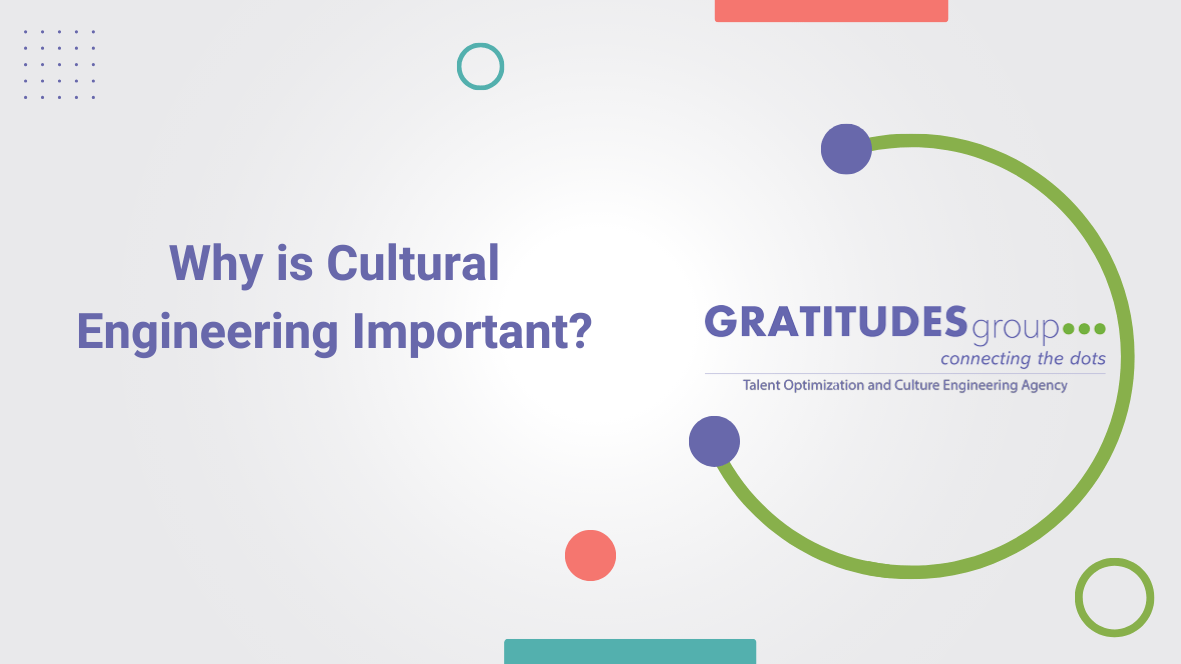Why is Culture Engineering Important?
Culture engineering, the intentional shaping of an organization’s values, beliefs, and behaviors, is a crucial aspect of modern business strategy. But why is it so important, and what are the benefits that organizations can reap from this intentional approach to strong culture?
Benefits of Culture Engineering
1. Higher Employee Engagement
One of the primary benefits of culture engineering is the elevation of employee engagement. As employees connect with the values and atmosphere of the organizational culture, they become more committed to their roles, fostering a sense of purpose and passion in their work as well as effective collaboration between team members.
2. Lower Turnover Rates
A well-crafted and inclusive culture tends to reduce turnover rates. When employees feel valued, respected, and aligned with the company culture, they are more likely to stay for the long term, contributing to organizational stability and knowledge retention.
3. Improved Customer Engagement
Culture engineering extends beyond the internal environment. It creates a ripple effect on customer engagement. Employees who are genuinely invested in their organization are more likely to deliver exceptional customer service via honest communication, leading to increased customer satisfaction and loyalty.
The Zappos Example
Consider Zappos, the online shoe and clothing retailer led by Tony Hsieh. Zappos engineered a unique and vibrant culture centered around inclusion, acceptance, inspiration, and learning. Zappos’ funky culture included a button in their lobby that when pushed, everybody leaves their offices to come dance together. While not every organization can replicate the exact methods, the core principle remains: creating a workplace where people genuinely want to be.
Culture Engineering in Action
1. Defining Core Values
Start by clearly defining core values that reflect the essence of the organizational culture. These values serve as the foundation upon which the culture is built.
2. Integration into Hiring and Onboarding
Culture engineering involves embedding company values into every stage of the employee lifecycle. From recruitment to onboarding, organizations should seek individuals who align with their cultural principles.
3. Recognition and Rewards
Actively recognize and reward behaviors that exemplify the organization’s values. This keeps employees happy while reinforcing the desired culture and motivating employees to embody these values consistently.
4. Technology and Programs
Leverage technology for rewards and recognition programs. These platforms can serve as tools for reinforcing cultural alignment, providing a structured way to acknowledge and celebrate employees who embody the organization’s values.
5. Constant Engagement
Your culture engineering efforts are not a one-time task. It requires continuous effort and intentionality. Regularly engage with employees at all levels of the entire company, seeking feedback, and adapting the culture to evolving needs and challenges.
Culture Engineering will Shape the Future of Work
Culture engineering is not a static process; it’s a living, evolving entity that requires ongoing attention. Organizations that invest in creating a positive, purpose-driven culture often find themselves reaping the rewards of increased employee satisfaction, customer loyalty, and, ultimately, higher profits. The Zappos example serves as a testament to the transformative power of cultural engineering when done with authenticity and commitment. So, as organizations strive to become employers of choice in a competitive job market, culture engineering emerges as a key differentiator in shaping the future of work.








